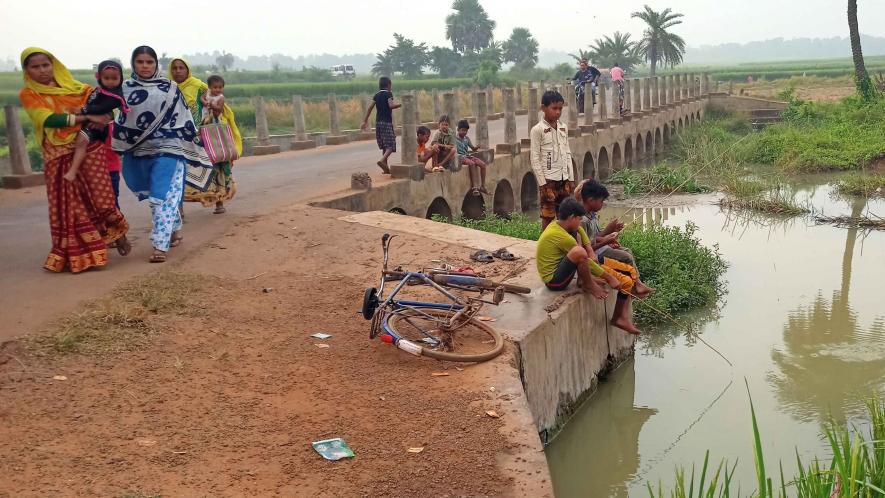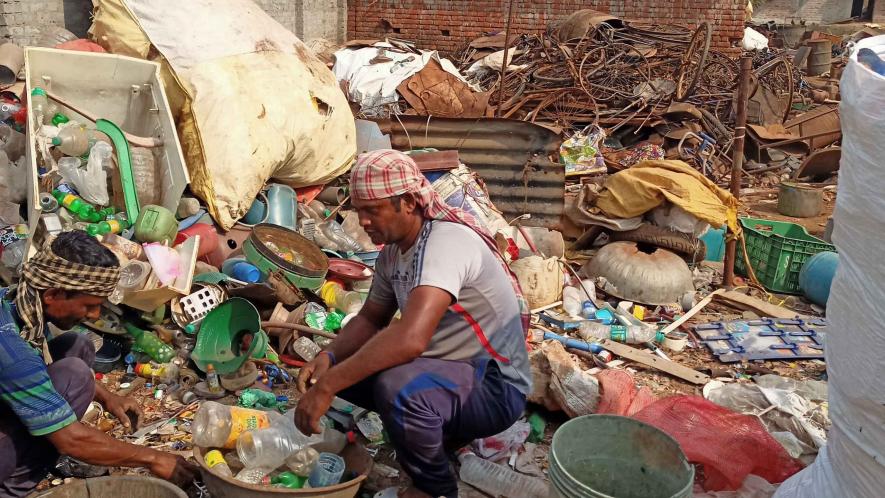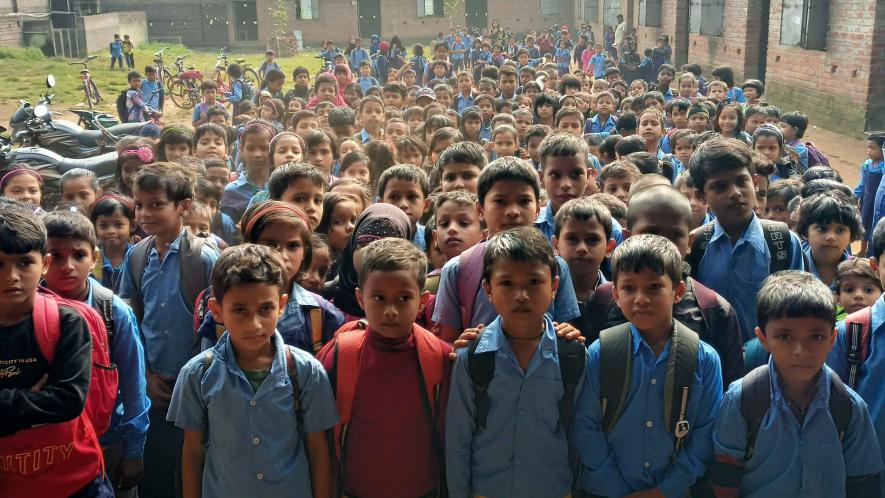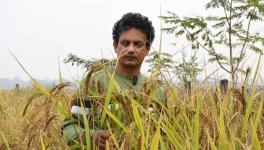Pathetic State of Education in West Bengal’s Muslim Majority Village

Instead of attending classes, school students fish in Punisol village, in the Jangalmahal region of West Bengal’s Bankura district.
The pathetic state of education in one the largest Muslim-dominated villages in West Bengal has compelled parents to enrol their children in coaching centres owned by educated unemployed youth.
Parents in Punisol village, located in the Bankura district’s Jangalmahal region, spend a significant portion of their incomes on coaching centres to ensure a good future for their children.
The several government-sponsored primary and high schools and madrasas in the village, with a population of around 80,000, fail to meet the educational needs. Students and parents don’t trust these schools. Besides, teachers, the education department and the Panchayat haven’t bothered to find the reason for students not attending schools.
Punisol, 162 km from Kolkata and 13 km from the Bankura district headquarters, has one of the largest Muslim populations in the state and country, according to district administration officials.
The village has 22 of the 29 Punisol Gram Panchayat seats. Approximately, 95% of the villagers don’t own cultivated land. Due to the lack of non-ceiling land, government land couldn’t be allocated to the residents during the Left Front regime.
A few villagers cultivate seasonal vegetables in the nearby forest. “Less than 100 people have government jobs most of which they got during the Left Front regime,” Mofijul Rahaman Molla, an MA in Bengali literature, told this reporter.
“Only four people were employed as primary teachers during the Trinamool Congress rule. Thousands of educated youths are unemployed,” says a jobless Molla. “Educated youths are depressed with passing of working age.”

Several villagers do menial jobs due to the lack of government jobs.
A majority of the population is employed in laborious and risky jobs like cutting trees, breaking boulders and digging and cleaning wells. Their financial hardship has been exacerbated by the halt in the MGNREGA scheme for the past two years.
Daily wager Rahim Aali Dalal is ready to do any job to support his family even if it’s risky. “I want to ensure my family’s survival. When a tree falls on a high-tension powerline, the administration calls us to remove it. We take risks for very little money.”
Jamir Molla, a well digger, said, “Several villagers have died digging and cleaning wells and breaking boulders. Many others are masons.”
More than a thousand villagers cycle 40-50 km daily to buy old newspapers and books, abandoned iron and steel and unused items from the district’s villages and towns. They sell the items to certain merchants and earn a meagre Rs 200 a day.
TV channels and mobile phones have indirectly affected the hawkers. “People prefer to watch or read news on television and mobile phones. Newspaper sales have been affected, which has impacted us,” said hawker Akbar Mondal.
SORRY STATE OF EDUCATION
Villager Safikul Islam said that the number of literate people above 40 is much lower. “During the Left Front rule, literacy centres were set up in several areas of the village. I learned to read and write at the Mondal Para Centre and realised the importance of education,” said Islam, trying hard to teach his son and daughter with his little income so that they don’t slog like him.

Only around 8,000 students of the 30,000 children are enrolled in schools.
There are approximately 30,000 boys and girls of school-going age but only six primary schools, one higher secondary school, one high school, one Junior High School, one Junior High madrasa and Madrasa Siksha Kendra (classes 5-8). About 8,000 students are enrolled in these schools and another 5,000 in four coaching centres.
“The rest are deprived of education,” said retired librarian Jalirul Rohoman Molla. “Several illiterate villagers are either migrant labourers or daily wagers here. Girls who couldn’t attend school are married off before the marriageable age.”
More than 3,000 students (classes 5-12) are enrolled in Punisol Board High School (higher secondary). However, there are only 22 teachers. Many parents allege that the students don’t receive sufficient attention.”
Afroz Mallik complained about the school’s infrastructure. “Students are able to attend classes only three days a week.”
The Junior High School in the Mondal Para area is shut due to a lack of teachers, said Mafizul Rohoman Mallik. “Several educated unemployed youths offered to teach at the Board High School and Junior High School without remuneration but the school authorities did not agree. As a result, the students face a crisis.”
Punisol Narul Uloom Siddikiya Madrasa Education Kendra headmaster Abdul Rohoman Khan said that the state government only provides minimal honorarium. “We purchase school notebooks, chalks and dusters. The Minority Development Department doesn’t bother.”
The situation is same at primary schools, where students don’t attend classes due to the lack of teachers. Board Primary School headmaster Dilip Barik said, “We encourage students to attend school regularly but parents sometimes are reluctant to send them. Even the syllabus isn’t good.”
Golam Khaja Khan recalled how during the Left Front rule there were sufficient teachers who regularly interacted with parents. “Now, the government doesn’t monitor the schools. Hopeless parents are forced to send their children to private coaching centres.”
Children of parents who can afford coaching fees are able to study while others like Nazrul Islam had to discontinue their studies because his father couldn’t afford it. “He dug well for a living. My uncle Amir Hossain also stopped studying midway and now works as a mason,” he said.
Headmasters Mojibur Rahoman (Punisol Mojaddia Shishu Siksha Niketan) and Farabul Hossain Khan (Ajmotiya Shisu Siksha Bhaban) are committed to educating the children.
Their curriculum includes interesting activities, cultural programmes, sports like cricket, football and athletics. The two also maintain regular communication with parents about their children’s progress.
Asked about the state of education in Punisol, Bankura additional district magistrate (general) Praloy Raychoudhury and Bankura District Primary School Council chairperson Basumitra Singh said that they are trying to improve the situation and block school inspector has been instructed to take action.
The writer covers the Jangal Mahal region for ‘Ganashakti’ newspaper in West Bengal.
Get the latest reports & analysis with people's perspective on Protests, movements & deep analytical videos, discussions of the current affairs in your Telegram app. Subscribe to NewsClick's Telegram channel & get Real-Time updates on stories, as they get published on our website.
























